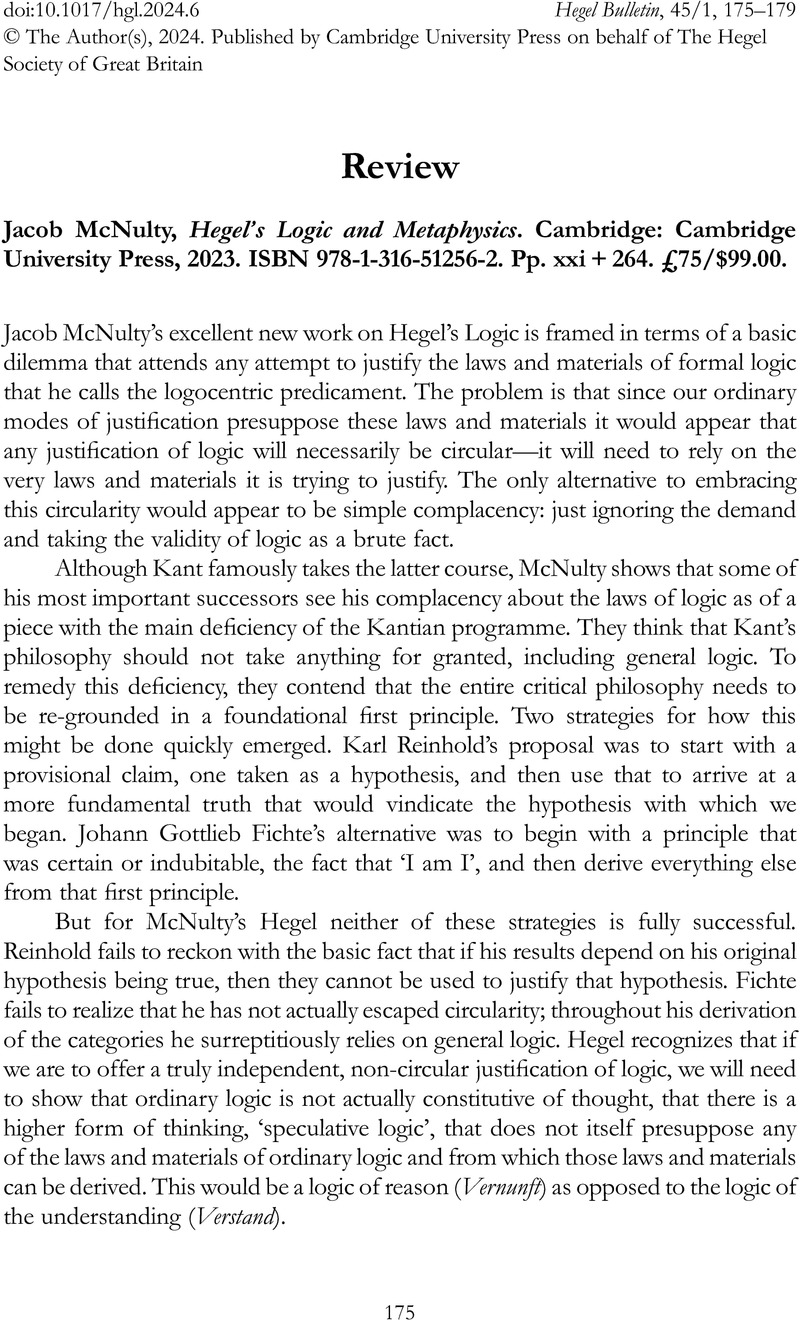Crossref Citations
This article has been cited by the following publications. This list is generated based on data provided by Crossref.
Little, Eliza Starbuck
2025.
Kant’s Leading Thread in Hegel’s Science of Logic.
International Journal of Philosophical Studies,
p.
1.




